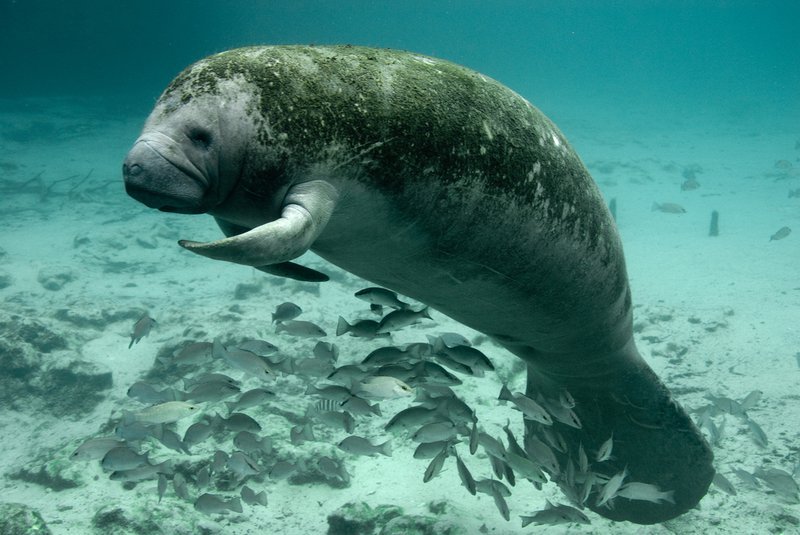A scientific study published this week concludes that Florida manatees are chronically exposed to glyphosate because of application of the pesticide to sugarcane and aquatic weeds.
The study found glyphosate, the active ingredient in Roundup and the world’s most-used pesticide, in the plasma of 55.8% of the Florida manatees sampled. The concentration of glyphosate in plasma has increased from 2009 to 2019.
Additionally, the study’s authors determined that glyphosate concentrations in the Caloosahatchee and St. Lucie rivers and Everglades Agricultural Area stormwater treatment areas were significantly higher before and during sugarcane harvesting when glyphosate is more likely to be applied than after harvest.
“Manatees are Exhibit A that Florida’s waters are in crisis and they shouldn’t be facing this kind of pesticide threat,” said Jaclyn Lopez, Florida director of the Center for Biological Diversity. “Our beloved, chubby sea cows are dodging boat strikes, reeling from red tide and starving in the Indian River Lagoon because of water pollution. It’s heartbreaking to add chronic glyphosate exposure to the list of factors threatening manatee survival.”
“The results of this recent study are cause for serious concern about the chronic use, fate and effects of glyphosate on the manatee population in south Florida,” said John Cassani of Calusa Waterkeeper. “An increasing trend for glyphosate in manatee plasma that correlates with concurrent increased usage of glyphosate is disturbing, especially at a time when manatee mortality is at very high levels. The authors report the same level of glyphosate exposure that manatees experience, causes kidney and liver damage in laboratory animals.”
Continue Reading
View the Full Report

























